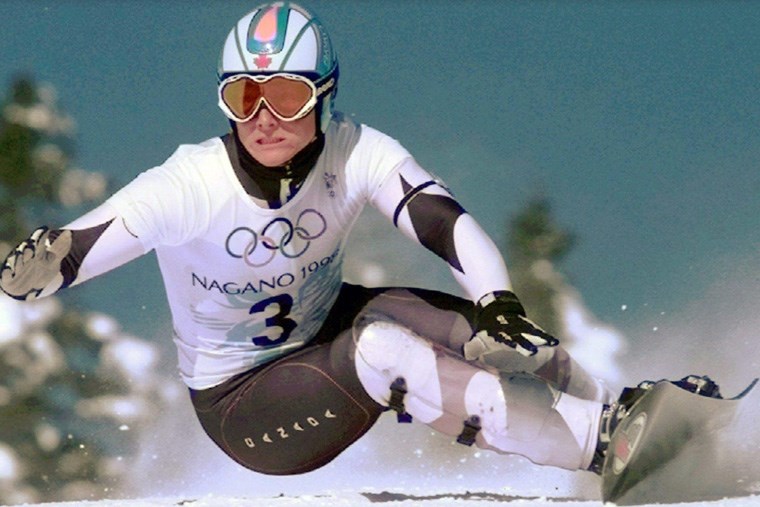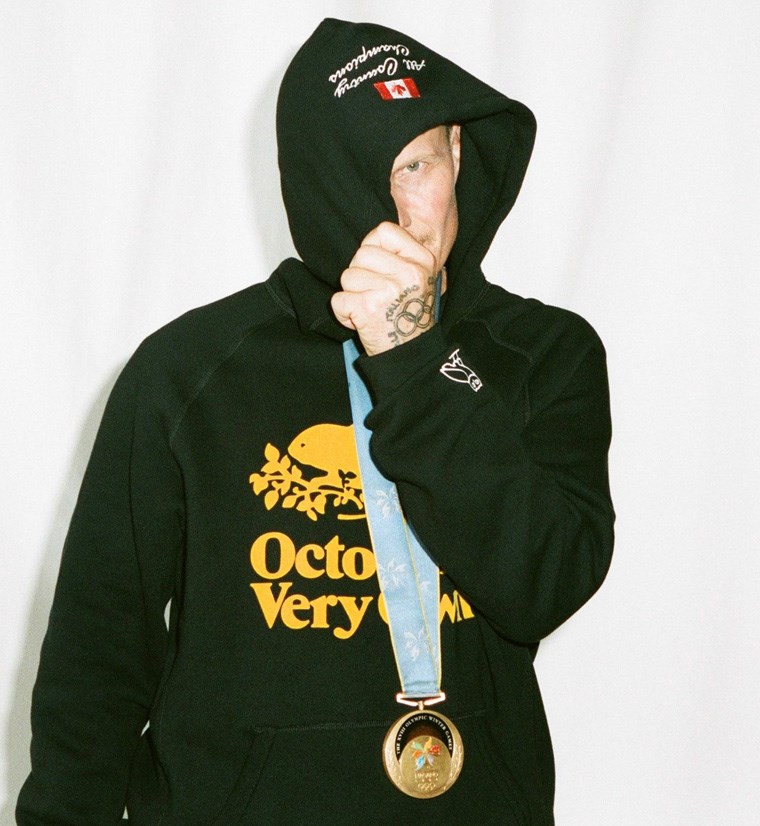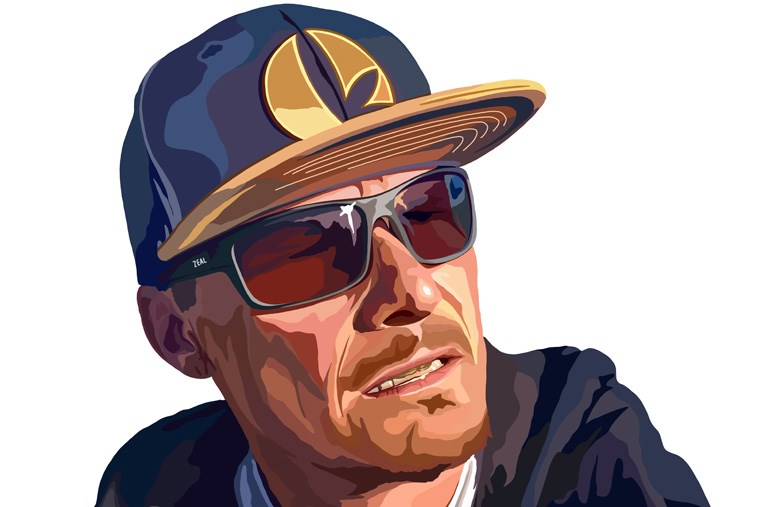It’s 1998. The Olympics in Nagano is the first introduction of snowboarding in the Games. The gold medal winner is Canadian Ross Rebagliati. In quick succession he is awarded gold, then stripped of his medals and sitting in the Olympic Village jail. Just over two days later his medals are returned. What happened?
Ross’ marijuana scandal is usually boiled down to, he tested positive, he lost the medals, he appealed, he got them back; but there is so much more to the story. What happened before, during, and after shaped who he is today, and gave rise to where Ross is now: on the edge of a cannabis empire.
“Snowboarding,” Ross’ smile is evident even though the interview is over the phone. “I guess it all started for me in the mid 80s. My buddies came back from a trip to America where snowboarding was a growing sport. They came back with boards and I wanted one too. I couldn’t get any in Vancouver until I found a second hand one in a bike shop.”
It wasn’t his first time on the slopes. Far from it. Ross had been ski racing since the early 80s and by age 15 was a national team hopeful in the giant slalom.
“By the time team qualifications rolled around I was ranked in the Worlds three years in the row, including holding the number 1 spot at some points,” says Ross. “So, I was pretty confident I was going to make the team. I did make the team… but it wasn’t without some controversy.”
After the first two qualification races Ross placed second. Having won plenty of races on the World Cup tour, he decided to skip the last two qualifiers and went to race in Europe. In his absence, the Canadian team decided not to pick him. Ross appealed the decision and apologized for missing the remainder of the qualifications. There were some internal politics involved but he made it onto the team. But between the trip and appeal, Ross was dealing with another setback.
“When I went to Europe the airline lost all my custom boards and gear,” he explains. “I ended up with full gear that the World Cup organizers and my sponsors cobbled together to help me. I had boots from France, and a ski suit form Italy.”
When he arrived back in Canada, he pulled an old snowboard out of the closet to replace the one he lost.
“I had designed it myself when I was in Austria. It was the right choice.”
Despite suffering from jet lag, anxiety from losing his gear two weeks before the Olympics, and the pressure of being in the inaugural introduction of snowboarding into the Games, Ross rode the board to victory.
“To win the first event of the first day with the newly accepted sport of snowboarding was quite the introduction to the world. Standing on the podium, how does it feel? I can’t think of how to describe it! It was a shock. A lot goes into getting into the games along with a lot of support from family, friends, and sponsors. Instead of going to university I dropped out to do this. I was already competing when I left high school but in the 90s there was no guarantee of making an income by snowboarding. It was such a big risk to take. At the time I felt it was my big opportunity to make something of my snowboard career. Remember, this was pre-internet so we had no idea what the impact would be like, but we all felt whoever got gold would become an icon for the sport.”
He grimaces.
“Instead it’s like when you get a college degree followed by no traction in your chosen field. It was definitely anticlimactic.”
That’s how it felt at the time, possibly because of the scandal that quickly followed and then proceeded to dog him for years. Yet, when he looks back, Ross feels the gold was more than about fame, sponsors and becoming a global ambassador. For him, the moment of standing on the podium hoisting the gold was deeply personal.
“I knew, in the back of my head, there was opportunity on the other side. It was a healthy sport for me. It kept me from drinking and helped me maintain a schedule of early to bed, early to rise. I didn’t have adverse social or peer pressure. And now snowboarding is as popular as hockey. The win helped showcase Canada in a really good light.”
But that healthy lifestyle included cannabis, which, until 2018, was illegal in Canada.
“I got started with cannabis towards the end of high school,” says Ross. “It was a Friday night thing. You know, everyone’s hanging out together and out comes a joint. Honestly it got a little old for me. On the weekends I really wasn’t partying much. I was doing competitions (skiing/snowboarding) during high school. My peers would be getting into trouble and I’d hear the stories.”
When he tested positive at Nagano, Ross maintains he was clean.
“I did three drug tests leading up to Nagano. After I made the team, I did another drug test. When the controversy started it was made public that I tested positive in all three of my pre-Nagano tests. I didn’t even know that before the story hit the news. I wasn’t smoking, but I was around people that were.”
Ross was devastated, then angry.
“I could have changed my environment. I could have been more careful. At the end of the day they outed me at the Olympics for breaking a rule. I couldn’t understand why they even let me compete if I had tested positive.”
Then another startling revelation came to light. He was able to compete because THC was not banned as per the International Olympic Committee rules (IOC). Ross promptly appealed and achieved another first. After being the world’s first gold medalist for snowboarding, he was also the first to be given medals back after having them officially rescinded.
He recalls, “On the World Cup tour, THC is on the banned list. We all knew this and were very careful. We assumed it was on the list at Nagano. When I tested positive at Nagano, I assumed it was on the list but it turned out the IOC had not banned it for the Games or the sport of snowboarding. That is the real controversy. They had never made a mistake like that before and tried to instantly correct it. I say it’s pretty brash of them to discredit and disqualify me for a substance that was not actually banned considering how important that banned substance list is. They must have known!”
 Ross Rebagliati
Ross RebagliatiThey did know, which is why they had to give his medals back. But that was far from the end of the story. The situation kicked off more than a decade of consequences that overshadowed his historic win.
“I developed post traumatic stress disorder and was depressed for 10 years. Even in 2010, the Canadian Olympic Committee wouldn’t give me credentials or access, despite me attending the 2002 games with full credentials. After 9/11 I was added to the no fly list. I continue to need an advance parole waiver from an immigration lawyer, who is now part of my life.”
Ross continues, talking about the tipping point, “I got denied at the border a couple times, once with my wife and newborn baby daughter. We were going to visit my mother in Palm Springs. We got turned back because I couldn’t go into the States, so there we were with a newborn baby and my wife being very emotional on the drive back.”
Enough was enough.
Ross decided to embrace the situation. If cannabis was going to affect his life to this level, he was going to control the narrative. The controversy would be his new podium where he would make a new kind of stand and issue in another first for Canada. He started his own cannabis brand, but in 2013, cannabis brands didn’t exist. Not legally anyways.
“We launched during prohibition as one of the first companies in cannabis. We launched a dispensary concept in (slim) hopes that something would come from the government to legalize things. We weren’t overly hopeful but we really bootstrapped it for eight years.”
That brand was ever so cheekily named Ross’ Gold.
“I wanted to build a brand that resonated with people on a personal level. I started with a line of glass called Ross’ Gold Glass and launched it the same week Tommy Chong was released from prison.”
In 2015 Ross and his team moved on to open the Ross’ Gold dispensary in Kelowna. In 2018 cannabis prohibition ended, and Ross and his team were ideally positioned to take the “higher” ground, which he affectionally dubs “cannabis 2.0.”
“We have been focusing on partnerships. We are rebooting Ross’ Gold glass and literally, as we speak, we are making a deal with Oakum Cannabis Corp who will be licensing the Ross’ Gold brand. Operating in conjunction with Oakum there will be a number of branded products to help consumers enjoy the full spectrum of the cannabis experience from proprietary grow lights to premium milk, pre-ground flower for quick rolling to vape cartridges. We expect to see these products on the shelves before Christmas.
“Oakum will also be backing our micro grow facility, which will be like a winery where you can come in and sample flower like you would a wine tasting and under the direction of a professional expert similar to a sommelier.”
That’s not all.
“Our Ross’ Gold genetics sets us apart as does our way of growing. We’re launching a proprietary nutrient plant food in conjunction with a great company from Vancouver. The lights, the nutrients, the genetics, the grow medium – all the parts create Ross’ Gold. Like, you could have a fryer but if you don’t have the McDonald’s fryer, you don’t have McDonald’s fries! Best of all, we are designing this model to be recreated by partners coast to coast.”
When Ross thinks about going from athlete to corporate businessman, he gives a wry chuckle.
“There was a learning curve. As an athlete I had never done an evaluation in my life. Now I’m in the boardroom cutting my own deals. I have a majority share in Ross’ Gold. Along with my lawyer and partners, that’s it.”
Ross’ Gold goes beyond the brand. For the Olympian, it’s also about much needed advocacy, especially in the light of what recently happened with Sha’Carri Richardson.
American track and field sprinter Sha’Carri was disqualified from the Olympics when she tested positive for marijuana. She used the drug to cope with the death of her biological mother, who passed a week before Olympic trials. She learned of the passing during an interview with a reporter.
“This is gut wrenching for me,” says Ross. “A young runner cut because of cannabis. I know how it feels.”
It makes him feel anger.
“For her to decide when learning her mom passed… to make that choice knowing she may test positive; she did this as an educated choice. You may argue that she let her team and family down but it’s the IOC that let her down for none other than discriminating reasons. Marijuana is not performance enhancing. It remains on the banned list for racist and corporate reasons. Nothing else.”
“Look at the stigma of cannabis,” he continues. “It is a form of discrimination and the harm runs deep. The laws were designed so cops had a reason to pick up and profile people. Look at the demographics of the people incarcerated.”
 Ross Rebagliati
Ross RebagliatiHaving been targeted and suffering from the stigma has ignited a burning passion in Ross.
“I want to save the world. Black lives matter. Indigenous lives matter. Climate change matters. LGBTQ+ lives matter. At Ross’ Gold we stand behind and support change for good.”
He feels optimistic with the emergence of studies aimed at uncovering more about cannabis’ health benefits, and the continued work to decriminalize cannabis in America.
“To be in the game for this long, from sitting in a jail in Nagano in 1998 to witnessing the way the stigma and legal ramifications of cannabis are changing now – this is my life’s mission.” He gives a quick pause and, once again, the smile comes right through the phone as he adds, “besides my family, of course!”
Twenty three years ago, young Ross was on top of the world. Winning the first gold in the inauguration of snowboarding into the Olympics should have changed his life for the better. Instead, it quickly took him to a dark place where old laws and stigmas clawed at his victory and tarnished his reputation. By taking charge of the situation, Ross is helping to usher in much needed change on all levels – not just for cannabis users, but underserved populations finding themselves targeted by unnecessary abuse and discrimination. He may have a shiny gold medal, but with the launch and relaunch of Ross’ Gold, the determined athlete turned businessman gives Canada another big win.
 This story was made possible by our Community Partners Program. Thank you Revive Cannabis for helping to expand local news coverage in Alberta. Learn more.
This story was made possible by our Community Partners Program. Thank you Revive Cannabis for helping to expand local news coverage in Alberta. Learn more.



